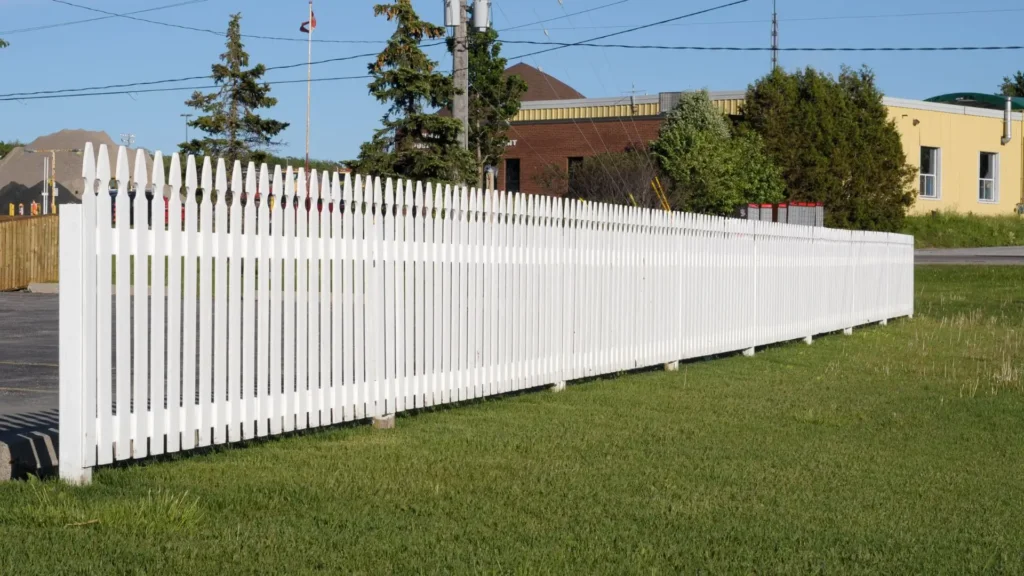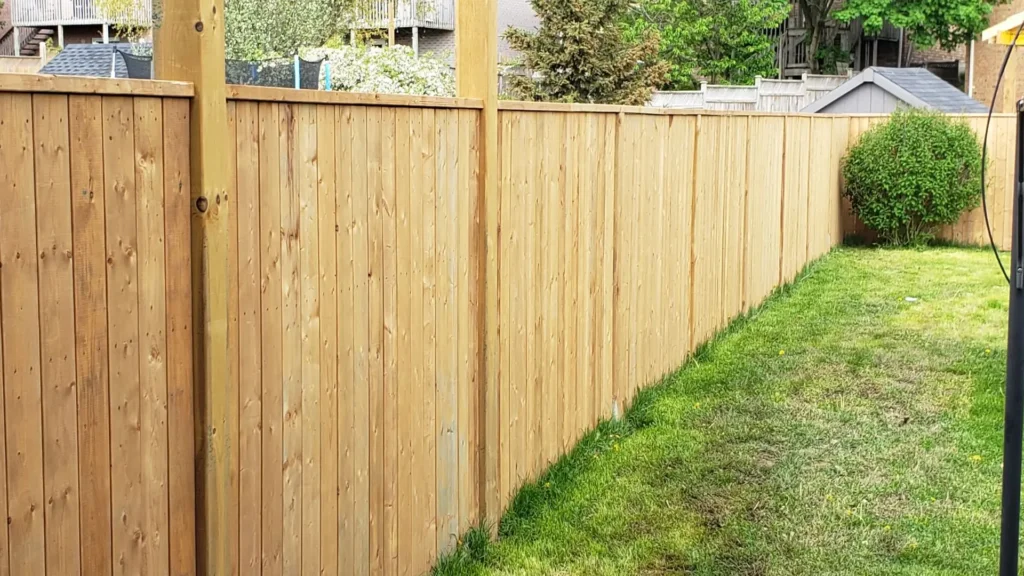Welcome to your go-to guide for understanding fencing costs in New Zealand. Whether you’re planning to build a new fence or replace an old one, knowing how much it will cost is a crucial first step. With so many options, timber, steel, PVC, and more, it’s easy to feel overwhelmed. That’s where a fence cost calculator NZ comes in handy. It gives you a quick estimate based on the size of your property, the material you choose, and other key details. This post will walk you through everything you need to know about using a fence calculator, what affects fencing prices, and how to budget smarter, so you’re not caught off guard when the quotes come in.
A fence cost calculator NZ is an online tool that helps estimate the total cost of building a fence in New Zealand based on factors like material type, fence length, height, and terrain. It provides a quick pricing guide for timber, PVC, steel, and other fencing options, helping homeowners budget more accurately before hiring a contractor or starting a DIY project.
Fence Cost Calculator
Total Estimated Cost: NZD $0.00
Table of Contents
What Is A Fence Cost Calculator?
A fence cost calculator is a digital tool that helps homeowners and property owners estimate the cost of building a new fence. It’s designed to give a quick, ballpark figure based on common project variables like the type of fencing material, the total length of the fence, the height, and the complexity of the terrain. The main goal of a fence cost calculator is to help you plan your fencing project with greater clarity before you contact contractors or purchase materials.
In New Zealand, fence building costs can vary widely depending on region, material availability, and local labor rates. That’s why using a fence cost calculator is a practical first step. It takes the guesswork out of the budgeting process and allows you to compare different materials, like timber, PVC, or steel, without spending hours researching pricing manually.
Online fence calculators usually work by asking you to input specific details about your project. Most tools will ask for:
- Fence length in meters
- Fence height
- Type of material (e.g. timber, aluminium, steel, PVC)
- Number of gates or special features
- Site accessibility or ground conditions
Once you enter these details, the calculator processes the data and gives you an estimated total cost, often broken down by material and labor. Some calculators are more advanced and offer regional pricing based on your location in New Zealand.
You should use a fence cost calculator at the beginning of the planning phase. It’s especially helpful when you’re comparing multiple fencing styles or trying to decide whether a full replacement or partial upgrade is more cost-effective. It’s also useful for setting realistic expectations if you’re applying for financing, preparing a home renovation budget, or getting quotes from contractors.
But is a fence calculator accurate enough for budgeting? The short answer is yes, for initial estimates. These tools give you a realistic range based on current market averages. While they can’t account for every detail like hidden underground utilities, soil instability, or local permit fees, they’re a valuable starting point. Think of them as a budgeting tool rather than a final quote. Once you have a general idea from the calculator, you can fine-tune your budget by requesting formal quotes from local fencing companies.
In short, a fence cost calculator simplifies early-stage planning. It saves time, helps avoid surprises, and gives you the confidence to move forward with a clear idea of what your fencing project might cost.
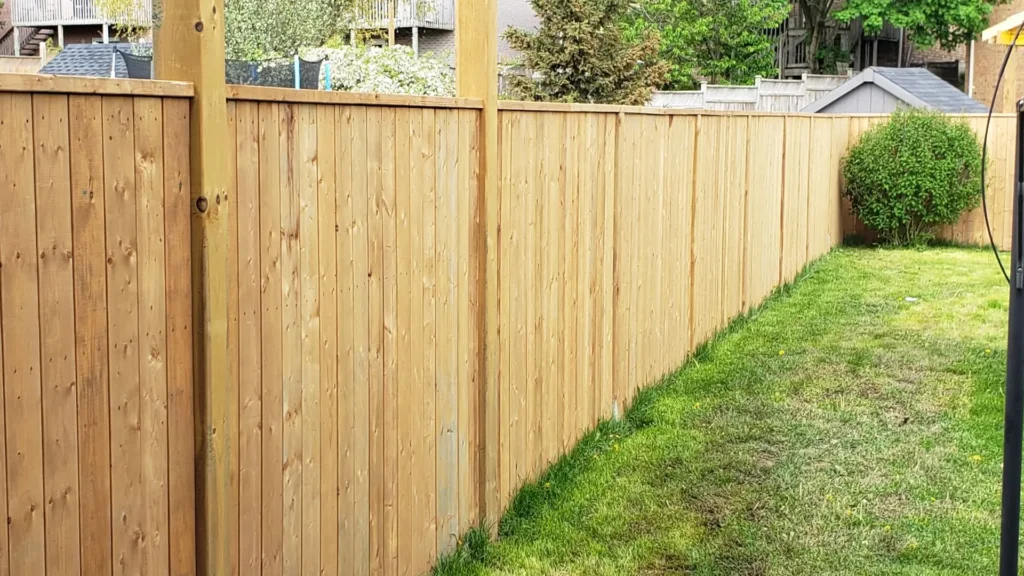
Key Factors That Affect Fence Costs In NZ
Understanding what drives fencing costs in New Zealand can help you plan your budget more accurately. Whether you’re building a fence around a small urban property or a large rural block, several key factors will influence the final price. These include the type of material, the size and layout of your property, labour charges, and local council requirements. Here’s a closer look at each.
Fence Type
The type of material you choose has a major impact on the total cost. Some materials are more affordable upfront but may require ongoing maintenance. Others cost more initially but are low-maintenance and long-lasting. Here’s a breakdown of common fence types in NZ:
Timber Fencing
- Most popular option across NZ
- Offers a classic, natural look
- Average cost: $75–$150 per meter
- Requires regular painting or staining to prevent rot
PVC Fencing
- Durable and weather-resistant
- Low maintenance and long-lasting
- Average cost: $150–$250 per meter
- Limited colour and style options
Aluminium Fencing
- Lightweight and rust-resistant
- Suitable for pool areas and modern designs
- Average cost: $180–$300 per meter
- Less privacy compared to solid panels
Steel Fencing
- Very strong and durable
- Ideal for security and commercial use
- Average cost: $200–$350+ per meter
- Can rust if not coated properly
Composite Fencing
- Made from a mix of recycled plastic and wood
- Modern appearance with minimal maintenance
- Average cost: $200–$300 per meter
- Higher upfront cost, but no painting or sealing required
Choosing the right material depends on your goals, appearance, privacy, durability, or budget.
Property Size And Terrain
The layout of your property plays a big role in determining fencing costs. A flat, rectangular backyard is easier and cheaper to fence compared to a sloped or irregularly shaped section.
- Size
Larger properties require more materials and labour. The total perimeter affects how many meters of fencing you’ll need, which directly influences the cost. - Terrain
Uneven or sloped land makes installation more complex. Contractors may need to dig deeper posts or adjust panels for stability. This adds to labour time and expense. - Soil Type
Rocky, sandy, or clay-heavy soil can affect how easily posts can be installed. More difficult ground conditions mean more work and higher costs. - Access
If trucks and equipment can’t easily reach the site, expect to pay more. Narrow access, steep driveways, or obstacles like trees can increase labour time.
Example: Fencing a flat suburban backyard might cost $120 per meter using timber. But a rural property with hilly terrain and poor access could push that same timber fencing above $160 per meter.
Labour And Installation Costs
How you choose to install your fence, on your own or with professional help, can make a noticeable difference in your budget.
DIY Installation
- Cheaper upfront
- You control the pace and process
- Requires tools, time, and basic construction skills
- Mistakes can lead to structural issues or council problems
Hiring A Contractor
- Adds professional labour costs
- Average labour adds $50–$100+ per meter
- Ensures code compliance and better workmanship
- Reduces the risk of long-term issues
Regional Differences
Labour rates vary across the country. In cities like Auckland and Wellington, prices are generally higher due to increased demand and the cost of living. Christchurch and regional towns often offer more competitive rates.
If you’re on a tight budget, consider doing part of the prep work yourself, such as clearing the area or removing an old fence, then hiring a contractor for the build.
Permit Or Council Requirements
Not every fence needs council approval in NZ, but it’s important to know when consent is required. Ignoring this step can lead to fines or having to remove your fence entirely.
When Consent Is Needed
- Fences over 2.5 meters high
- Fences around pools (must meet safety regulations)
- Shared boundary fences with retaining walls
- If the fence affects traffic visibility or public areas
Always check with your local council before you begin. Each region may have slightly different requirements.
How Permits Affect Costs
Getting consent usually involves an application fee and, in some cases, an inspection. This adds time and money to your project. If the fence design needs to be adjusted to meet regulations, it may also impact the materials and labour costs.
In short, understanding permit rules early helps you avoid surprises that could derail your timeline or inflate your budget.
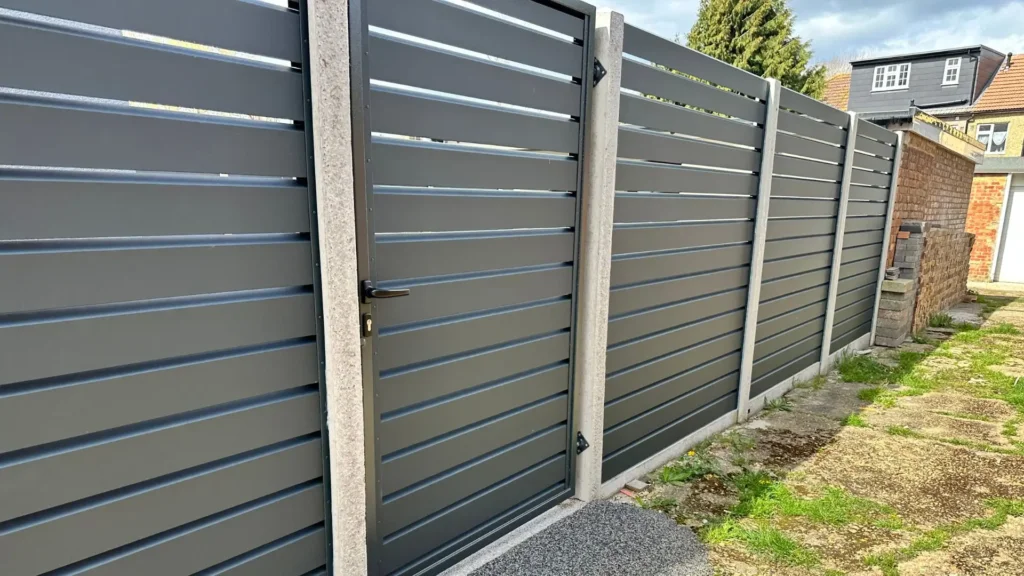
Average Fence Costs In New Zealand
If you’re planning a fencing project in New Zealand, understanding the average cost per meter can help you budget smarter and avoid surprises. Fencing prices vary depending on several factors, including the material you choose, your location, and the complexity of the job. Below is a breakdown of what you can typically expect to pay for different types of fencing materials per meter.
Average Cost Per Meter By Material (NZD)
| Fence Material | Estimated Cost (per meter) |
| Timber | $75 – $150 |
| PVC/Vinyl | $100 – $200 |
| Aluminium | $120 – $250 |
| Steel | $180 – $300 |
| Wrought Iron | $250 – $400 |
| Wire/Chain Link | $70 – $130 |
| Composite | $200 – $350 |
These prices include both materials and basic installation costs. The final cost may vary depending on local labor rates and the condition of your property.
Cost Comparison: Urban Vs. Rural Areas
Where you live in New Zealand can influence your total fencing cost. Urban areas like Auckland, Wellington, and Christchurch often have higher labor costs due to demand and travel time. On the other hand, rural areas may benefit from lower labor rates, but access challenges can increase transport and setup costs.
For example, fencing a suburban backyard in Hamilton might be more affordable than building a fence around a lifestyle block in Central Otago, where terrain and access could make installation more time-consuming.
Real-Life Example: Small Backyard Vs. Lifestyle Block
Let’s compare two practical scenarios using a timber fence as the example material:
Scenario 1: Small Urban Backyard (20 meters of fencing)
- Timber fence: $120 per meter
- Total estimated cost: 20m × $120 = $2,400
Scenario 2: Rural Lifestyle Block (200 meters of fencing)
- Timber fence: $100 per meter (bulk discount)
- Additional transport/setup costs: $1,000
- Total estimated cost: 200m × $100 + $1,000 = $21,000
While rural properties often have more land to fence, some suppliers may offer bulk pricing. Still, setup logistics like uneven terrain and long travel times can add to the final bill.
Sample Pricing Breakdown Using Fence Calculator Data
Here’s a sample result from using a standard fence cost calculator in NZ:
- Fence Type: PVC
- Length: 30 meters
- Height: 1.8 meters
- Location: Suburban property in Wellington
- Terrain: Flat, easy access
Estimated Results:
- Material Cost: $4,500
- Labour: $1,800
- Waste Removal: $250
- Consent and Miscellaneous: $300
- Total Estimate: $6,850
This example gives you a realistic idea of how online calculators break down fencing costs. It’s important to enter accurate measurements and choose the right materials to get the best estimate for your project.
Knowing the average fence costs in New Zealand gives you a better understanding of what to expect before contacting local contractors. You’ll be more prepared to compare quotes, set a budget, and make informed decisions that suit your property and fencing goals.
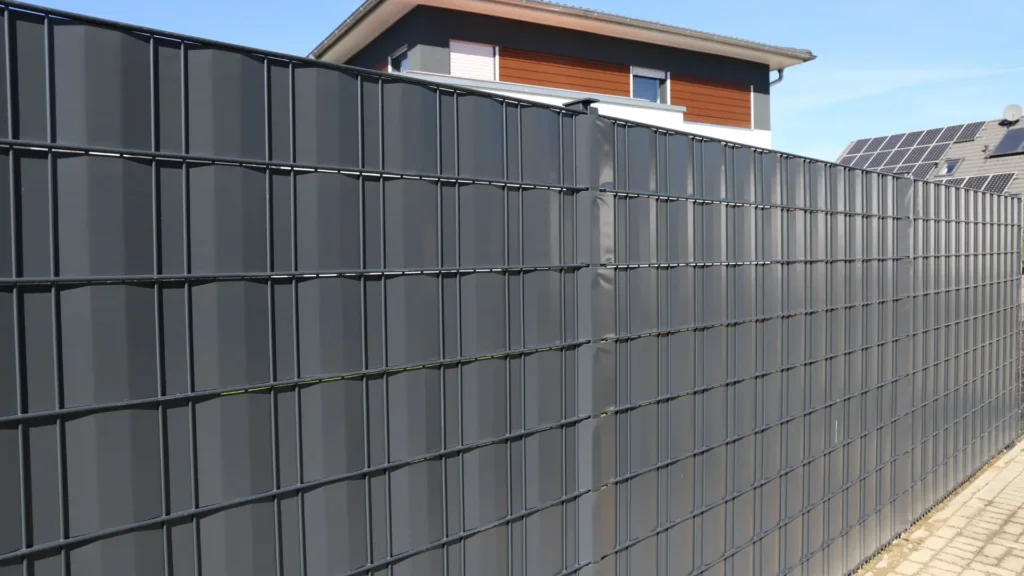
How To Use A Fence Cost Calculator In NZ
Using a fence cost calculator in NZ is a smart first step when you’re planning to build or replace a fence. Whether you’re working with a contractor or considering a DIY project, a calculator helps you understand what to expect financially. It gives you a realistic estimate by factoring in the most common variables that influence fencing costs, without needing to talk to a builder right away.
There are several free tools online that you can use. Some of the most reliable include:
- Zones Fencing Calculator – Offers a simple layout for choosing materials, dimensions, and layout preferences.
- Builderscrack Fence Quote Calculator – Designed for homeowners seeking estimates before posting a job.
- Mitre 10 Fence Planner – More visual, ideal for planning timber and paling fences for DIY projects.
Before using any fencing estimator NZ tool, it’s important to prepare the necessary information. This ensures your result is as accurate as possible. Here’s what you’ll need:
- Fence Length – Measure the total linear meters of the area you plan to fence.
- Fence Height – Decide on your desired height (e.g. 1.2m, 1.8m, or 2m), depending on privacy or legal requirements.
- Fence Material – Choose the type of material: timber, PVC, steel, aluminium, or composite. Each has different cost implications.
- Ground Terrain – Is your site flat, sloped, or uneven? Challenging terrain usually raises labour and installation costs.
To give you an idea, here’s how the process works using the Builderscrack calculator:
- Open the calculator and select “Fencing” as your project type.
- Input the fence dimensions by entering the total length and height in meters.
- Choose the material you want to use. The tool will show estimates for different materials to help you compare.
- Describe your property conditions, such as whether the land is sloped or has hard soil.
- View the estimate. You’ll get a rough price range based on typical NZ labour and material costs.
This quote calculator gives you a fast breakdown, helping you plan better and avoid surprises when you speak to contractors. While it’s not a final price, it’s a reliable guide to fence building costs based on your location and project details.
Using a fence cost calculator in NZ takes only a few minutes but can save you time, money, and stress in the long run. Whether you’re fencing a backyard in Auckland or enclosing a lifestyle block in Canterbury, this simple step helps you make better, more informed decisions.
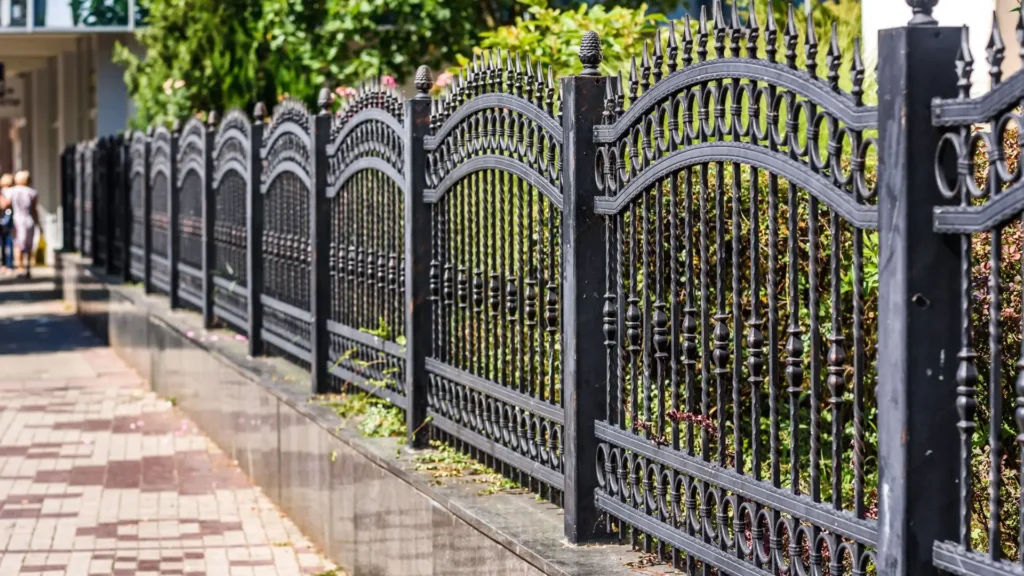
Fence Calculator Vs. Real-World Quotes
Using a fence cost calculator is a smart first step when planning your fencing project in New Zealand. It gives you a quick estimate based on basic details like the length, height, and material of your fence. For most homeowners, it’s a helpful tool to get a rough idea of what to expect. But it’s important to understand that this number is just a guide, not the final cost you’ll pay once the job is done.
Online calculators often miss a few key details that can significantly affect your total budget. For example, they don’t factor in the condition of your land. If your property is on a slope, has rocky soil, or poor access, the installation could be much more complicated and expensive. Most tools also skip over extra costs like clearing old fencing, removing waste, or addressing drainage issues.
This is why it’s essential to follow up with real-world quotes from local fence builders. These professionals can assess your property in person, give practical suggestions, and spot potential challenges early. Always aim to collect at least two to three written quotes. It gives you a better sense of the average cost, helps you compare services, and prevents you from overpaying. In many cases, contractors will also offer recommendations on materials or layouts that can help you save money or improve the final result.
In short, a fence calculator is a great planning tool, but it should never replace a detailed, in-person quote from experienced professionals in your area.
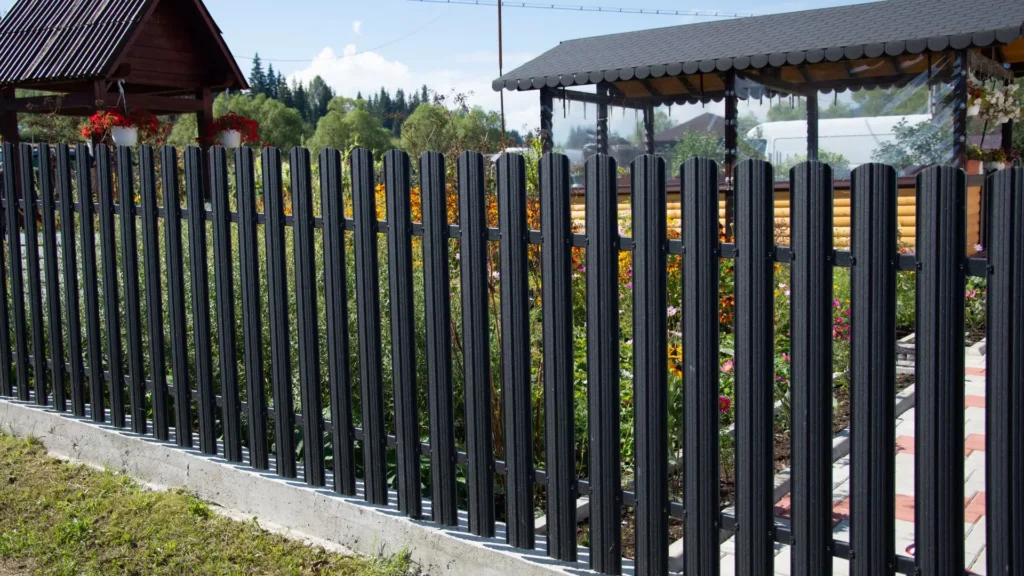
Cost-Saving Tips For Fencing Projects
Fencing your property can be a big investment, but there are smart ways to reduce costs without cutting corners. Whether you’re hiring a contractor or planning a DIY build, a few simple strategies can help you stay within budget while still getting the results you want. Below are four practical cost-saving tips you can apply to your next fencing project in New Zealand.
- Combine Jobs With Neighbours (Shared Fencing)
If your new fence will sit on a boundary line between your property and a neighbour’s, talk to them about sharing the project. In New Zealand, it’s common for neighbours to split the cost of a boundary fence since both parties benefit from the structure. Before you start, agree on the fence type, height, materials, and budget. Make sure everything is in writing to avoid misunderstandings. This shared approach can cut your fencing costs by half and may also simplify approval and council compliance. - Use Standard Sizes And Materials
Custom or non-standard fence designs can increase both material and labour costs. Sticking to standard sizes for panels, posts, and gates helps you avoid waste and makes installation quicker and easier. Materials like treated timber, steel, or basic PVC tend to be more affordable and readily available. Check with local suppliers for the best prices on bulk or standard options, and try to match your design to commonly stocked items. - DIY Prep Work (Clearing, Measurements)
Even if you plan to hire a fencing contractor, doing some of the preparation yourself can reduce the total project cost. Clear the fence line of vegetation, debris, and obstacles before the crew arrives. Take accurate measurements of the property boundaries and fence sections so that your builder doesn’t need to spend time on it. If you’re confident in your skills, you can also dig post holes or help with cleanup, which may lower the labour charge. - Off-Season Discounts Or Bulk Deals
Fencing companies often have slower periods during colder months, especially in winter. Booking your project during this off-season could give you access to better rates or promotional offers. Similarly, purchasing materials in bulk or teaming up with friends, neighbours, or community groups for a group buy may qualify you for supplier discounts. Always ask for a quote breakdown to see if there’s room for savings based on timing or volume.
These simple tips can make a noticeable difference in your overall fencing budget. With a bit of planning, communication, and flexibility, you can lower your costs while still building a quality fence that lasts.
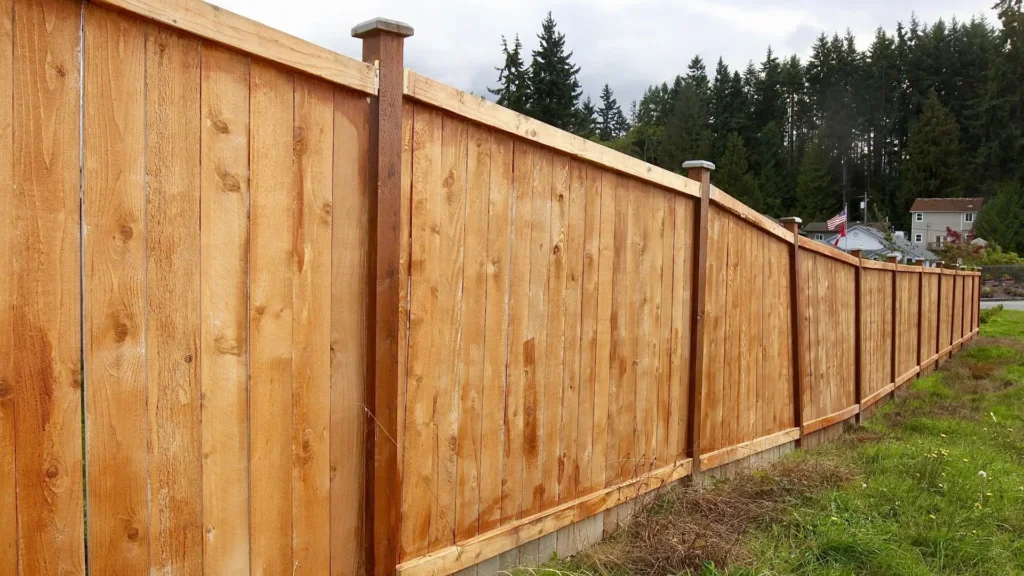
When To Hire A Pro Vs. DIY
Deciding whether to build your fence yourself or hire a professional can make a big difference in cost, quality, and how smoothly your project runs. If you’re handy with tools and have some building experience, DIY might seem like a budget-friendly choice. But it’s not always the best option for every situation. Let’s break down when it makes sense to go the DIY route and when calling in a professional is the smarter move.
Pros And Cons Of Doing It Yourself
One of the biggest advantages of DIY fencing is the potential to save on labor costs. If you already own the necessary tools and have time to spare, you could reduce your total budget significantly. It also gives you full control over the project, from design to final touches. You can work at your own pace and choose materials that suit your style and needs.
But DIY fencing comes with challenges. Measuring, digging, leveling, and setting posts correctly requires skill. If the fence isn’t aligned or anchored properly, you might deal with sagging, leaning, or even safety issues later. Mistakes can lead to higher costs in the long run if you have to redo the work or hire someone to fix it. And if you’re unfamiliar with local council rules, you risk running into legal issues or delays.
Jobs Best Left To Professionals
Certain types of fences are more complex and should always be handled by experienced contractors. Pool fences, for example, must meet strict safety and building regulations in New Zealand. A poorly installed pool fence can be both a safety risk and a legal issue. Retaining wall fences are another example. They require knowledge of drainage, soil pressure, and structural support, things the average DIYer might not be equipped to handle.
Sloped properties, tight boundaries, and heritage zones also call for professional input. In these cases, hiring a licensed contractor ensures the work is done to code and avoids costly mistakes. Pros also carry liability insurance, giving you peace of mind if something goes wrong during the project.
Tips For Finding Reliable Contractors In NZ
If you decide to hire a pro, take time to choose someone reputable. Start by asking for recommendations from friends or neighbors who have had similar work done. Online platforms like Builderscrack or NoCowboys offer customer reviews and verified tradespeople across New Zealand.
Always get at least two or three written quotes. Look for clear breakdowns of materials, labor, and timeframes. Ask if they provide a workmanship guarantee, and make sure they’re familiar with local council requirements. Don’t just go with the cheapest quote, look at experience, past projects, and customer feedback.
Also, ask to see examples of previous work, especially if you’re hiring for a specialty project like a security fence or a feature wall. Good contractors will be transparent, communicative, and happy to answer questions. Taking the time to find the right professional can save you money, stress, and effort in the long run.
Whether you go DIY or hire a contractor, the goal is the same, a strong, safe, and attractive fence that adds value to your property. Choose the path that matches your skills, budget, and timeline.
Ready to plan your fencing project with confidence? Use our simple Fence Cost Calculator NZ and get a clear estimate before you build.
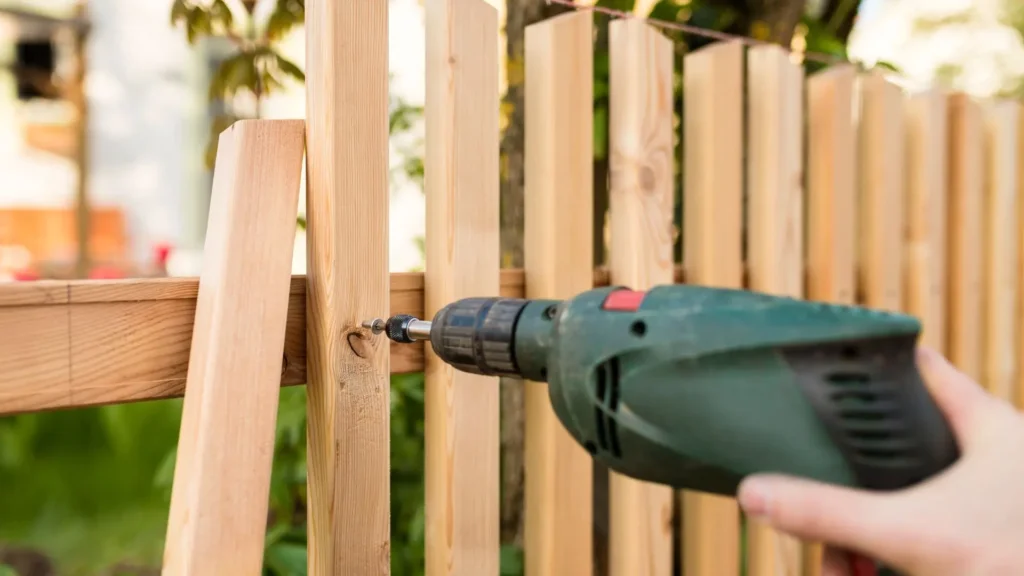
FAQs: About Fence Cost Calculator In NZ
What is a fence cost calculator NZ?
A fence cost calculator NZ is an online tool that helps you estimate the total cost of building a fence based on factors like material type, fence length, height, and site conditions.
How accurate is a fence cost calculator?
While a fence cost calculator provides a helpful estimate, it may not include hidden costs like labor variations, site preparation, or permit fees. It’s best used as a budgeting guide.
What information do I need to use a fence cost calculator?
You’ll need to know the length and height of the fence, preferred materials (timber, PVC, steel, etc.), and some basic details about the site conditions such as terrain type and accessibility.
How much does it cost to build a fence in NZ?
On average, fencing costs range from $75 to $350+ per meter depending on the material, location, and labor involved. Timber is usually more affordable than steel or PVC.
What factors affect the cost of a fence in NZ?
Key cost factors include the type of fencing material, the total area to be fenced, ground conditions, labor rates, location, and whether consent or permits are required.
Do I need a building consent to put up a fence in NZ?
In most cases, you don’t need consent for fences up to 2.5 meters high. However, if the fence is near a boundary or involves a retaining wall, local council rules may apply.
Can I use a fence cost calculator for both residential and rural properties?
Yes. Most calculators allow input for various property types, whether you’re fencing a backyard in the city or a large section in a rural area.
Should I get a quote after using the calculator?
Absolutely. The calculator gives a general estimate, but it’s always smart to get 2–3 quotes from local fencing contractors for a more accurate and site-specific price.
Is DIY fencing cheaper than hiring a contractor?
DIY can reduce costs if you have the right tools and skills. But hiring a professional ensures the job meets local regulations and is structurally sound, especially for complex installs.
Are there ways to save money on fencing in NZ?
Yes. You can save by choosing affordable materials, doing prep work yourself, building during the off-season, or sharing fencing costs with a neighbor on boundary lines.
Conclusion
Using a fence cost calculator NZ is a smart and practical first step when planning your fencing project. It helps you understand potential costs upfront, compare different materials, and avoid unexpected expenses down the track. Instead of guessing or waiting for multiple quotes, a calculator gives you an instant estimate based on your specific needs. This can save you time and help you make better decisions before speaking with a contractor. Whether you’re budgeting for a timber fence in the backyard or planning a large boundary fence on a rural property, having a rough cost in mind gives you more control. For the most accurate results, use a reliable calculator that considers length, material, and site conditions. Ready to estimate your project? Try our fence calculator now and take the guesswork out of your fencing budget.
